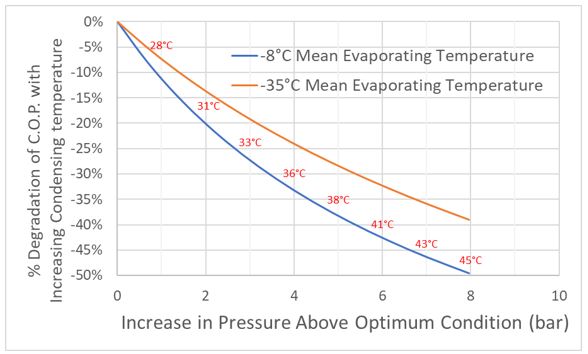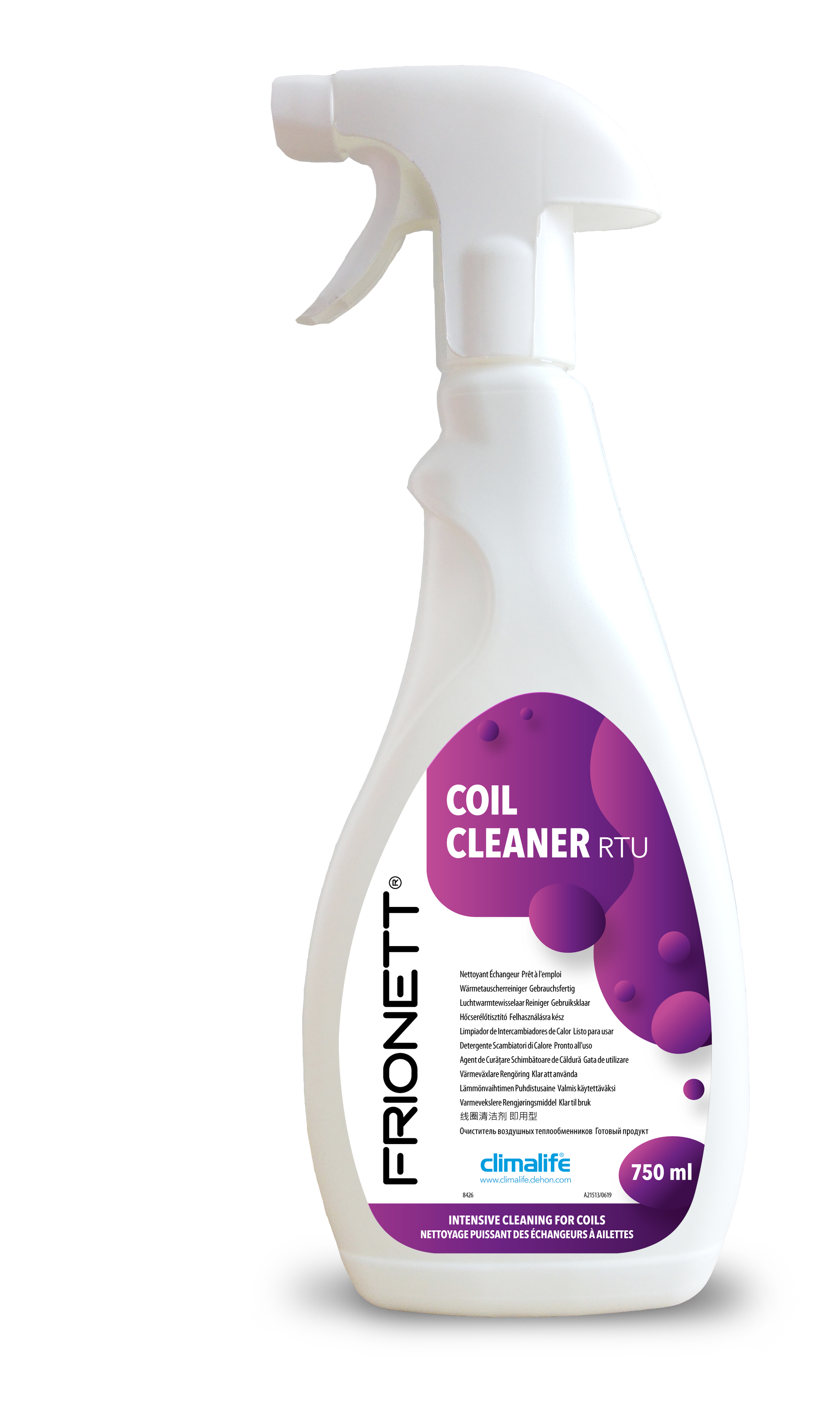Achieving better energy efficiency through good servicing and maintenance
Climalife UK
We are all aware of the F-Gas legislation and the drive to low GWP refrigerants, but this is only one part of the overall solution to reduce climate changing emissions. As well as refrigerant choice, there are other actions that can be taken to maintain or improve energy efficiency, reduce total emissions and in most cases, they will often pay for themselves over the lifetime of the equipment.
Good Maintenance and Energy Efficiency
To ensure that systems continually operate at their optimum level, a good maintenance program is recommended. In recent years there has been a decline in end users seeing the value of routine maintenance in favour of a more reactive type of approach. For these users, this could prove to be more costly in the long run than paying for good regular maintenance.
This is probably the easiest strategy to employ but often end users do not see the benefits of spending money on a system that appears to have nothing wrong with it. However simply cleaning the heat exchangers, ensuring fans are operating correctly and checking the system operating parameters can have a significant impact on system emissions.
Figure 1-Degradation of C.O.P. with increasing condensing temperature for R-449A
Figure 1 shows the impact of increasing condensing temperatures with R-449A at low and medium temperature conditions. Even a very small increase in the condensing temperature can lead to significant decreases in energy efficiency, for example, an increase from 25°C to 27°C condensing temperature can lead to a 5-8% loss of compressor energy efficiency.
It doesn’t take much fouling of the condenser coil to cause a small pressure increase and it is easily prevented by regular use of cleaning products which will prevent build-up of debris that can block the air flow through the coils, maintaining the optimum energy efficiency.
In situations where condenser fans have either failed or are malfunctioning, energy efficiencies could easily drop by 25% or more.
Oil Changes
Regular oil changes should also form part of a good maintenance regime, to ensure all the moving parts of a compressor are lubricated to their optimum level to give you optimum energy efficiency.

Combine regular cleaning with oil changes and this will have a large positive impact on energy efficiency.
Coil Cleaning
Coils should be cleaned within ventilation systems as the coil is in the direct air flow path on all ventilation systems. Therefore, it has a direct impact on the rate of air flow, efficiency of heat transfer and indoor air quality.
When coils are covered in dirt or debris it adds an extra layer between the air that is blowing over the coils and the refrigerant inside that absorbs and releases the heat. This layer of dirt acts like an insulator and makes heat transfer less effective. With poor heat transfer it decreases the efficiency of cooling cycles and can lead to units running hotter and longer but with the requirement to produce the same degree of cooling making them work much harder for the same target temperature.
Having units with dirty coils not only leads to higher energy bills, poorer air quality and system reliability can also be adversely affected. Even relatively low levels of deposition on the coils can cause these detrimental effects and potentially decrease system lifetime.
A powerful cleaning product such as Frionett® Coil Cleaner, from Climalife could be used for the degreasing of indoor unit coils.
By using a product such as this, you will see the cleaning and degreasing power unblock the airflow by eliminating dust, debris grease and other pollutants. Unrestricted airflow is critical to optimise the operating temperature and cooling efficiency, reduce wear on the system and increase its lifespan.
Don’t forget the outdoor unit condenser coils!
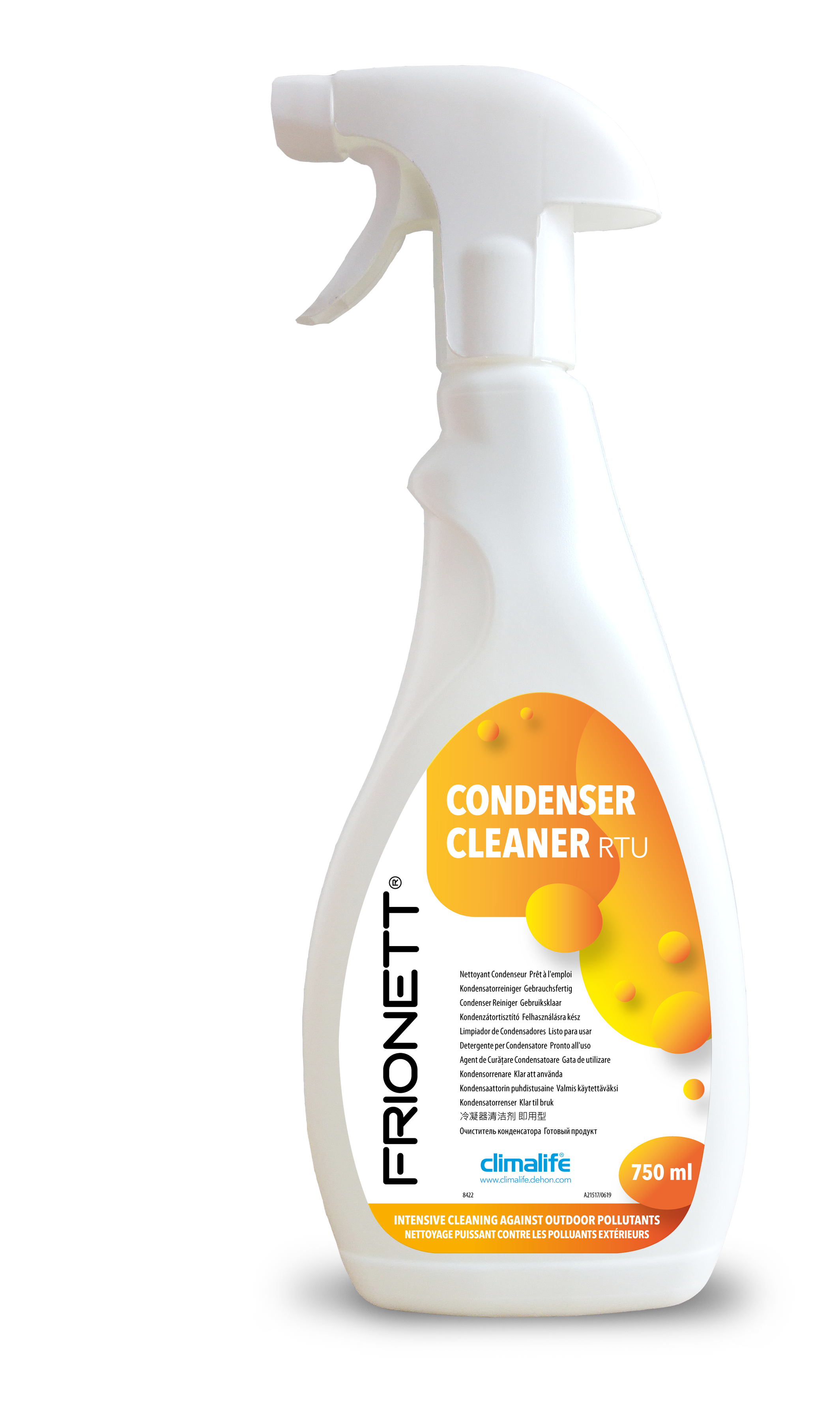
Ensuring the outdoor unit condenser coil is kept in good condition is also critical to optimum system efficiency and reliability. Reduction in air flow through the outdoor unit will rapidly cause the system to lose cooling performance and energy efficiency. Products such as Climalife’s Frionett® Condenser Cleaner are specially formulated to remove outdoor pollutants from the external units of air-conditioning and refrigeration systems and maintain system performance.
Removing impurities from a secondary glycol system
Corrosion and debris in a heat transfer fluid can also lead to poor performance and an example of this was seen in a recent case study situated in a pizza production operation in the UK.
GEA Refrigeration UK Ltd, who maintain the pizza manufacturer's refrigeration plant, found poor performance in one of the chillers due to corrosion and debris in the heat transfer fluid.
"It was essential that we completely removed the contaminated glycol from the secondary circuit, as well as any impurities, before we could refill with new heat transfer fluid. We were looking for powerful, easy-to-use cleaning products that would remove the residue from the system," said Jeff King, Head of Service at GEA Refrigeration UK in the Spalding region.
Dave Richards, UK Head of Sales for Climalife, recommended the use of Desoxyclean as a first step in removing surface corrosion, scale and sludge from pipes. He then recommended Dispersant D to remove all pollutants from the system.
Desoxyclean can remove surface corrosion, scale and sludge from pipes. The advantage of this product is that it can be used on all common materials, including copper, aluminium, steel, stainless steel, brass, iron, rubber, plastic and ceramics.
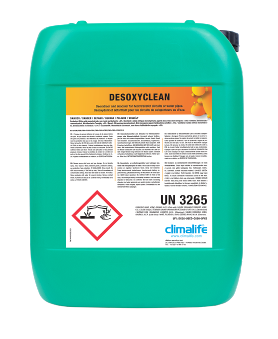
Dispersant D can then be used to remove all pollutants from the system as it is an essential and effective product for removing non-encrusted suspended metal oxide particles and sludge.
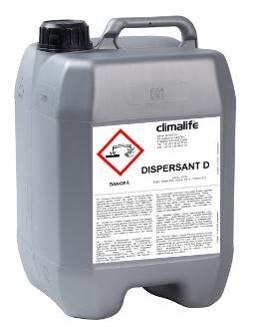
When used in conjunction with one another, the two products work effectively to remove encrustations and dirt in a circuit. Both products are easy to use by mixing with water and are conveniently packaged in 20kg containers. Fast acting and effective products help to minimise any system downtime.
In Summary
As the old proverbial saying goes, prevention is better than cure – who wants an unexpected and costly repair bill were a system to suffer a break down? It is very important to have a regular cleaning and maintenance programme in place for all HVACR systems.
As an industry, we can help to improve energy efficiency with careful thought and planning on new equipment and employ some good practises relating to effective cleaning and maintenance. It is our responsibility as individuals and as a collective industry to ensure we act in line with the legislation and take actions that support the movement towards lower GWP products and improving energy efficiency.
